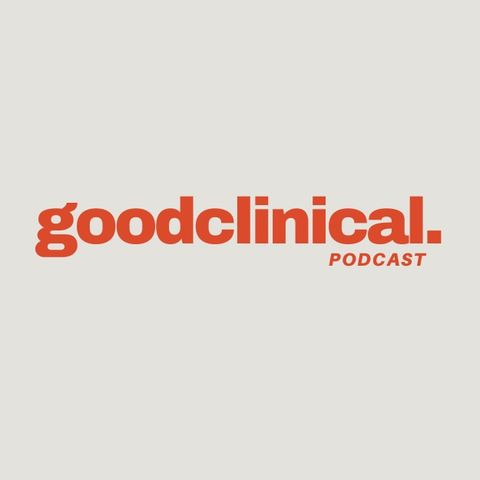Future Ep 38 - Dr Haruna Suzuki-Kerr & Dr Julie Choisne | Leaders in MedTech - Te Titoki Mataora

Download and listen anywhere
Download your favorite episodes and enjoy them, wherever you are! Sign up or log in now to access offline listening.
Description
Good Clinical has teamed up with Te Titoki Mataora, the MedTech Research Translator, to bring you the Te Titoki Mataora Podcast Series. In this episode I chat with two Senior...
show moreIn this episode I chat with two Senior Research Fellows within The University of Auckland, Dr Haruna Suzuki-Kerr from the Faculty of Medical & Health Sciences, and Dr Julie Choisne, from Auckland Bioengineering Institute.
Dr Julie Choisne's research is in the realm of paediatric biomechanics, looking at how children grow, how their bones grow, and how muscle growth affects their movements and applying that knowledge to children that have bone deformities.
Dr Haruna Suzuki-Kerr's research involves trying to develop a new technology that can help treat individuals with sensory neural hearing loss.
The episode particularly focuses on the Future Leaders module and other associated modules under the health tech capability programme provided by Te Tītoki Mataora, which are a part of an initiative aimed at supporting emerging researchers, entrepreneurs, clinicians, and others alike into the MedTech fields. Julie and Haruna are both actively involved in the programme, and they share insights into the modules provided by Te Titoki Mataora and their experiences. We also discuss other topics such as the importance of MedTech and innovation in New Zealand and envisioning NZ's future in this space.
Check out more about Te Titoki Mataora here: https://www.cmdt.org.nz/
Podcast Takeaways:
- Early-career researchers face numerous challenges, including managing their first research projects, writing grants, and balancing personal and professional life. The health tech capability programme aims to support them through this transition.
- Beyond technical expertise, researchers need to develop soft skills, such as effective communication, networking, and collaboration, to advance their careers and succeed in grant writing and commercialisation.
- Learning from experienced professionals and forming networks with peers at similar career stages is crucial for growth and overcoming common challenges in the MedTech field.
- Researchers often focus too heavily on the technical side of their work and forget to highlight the broader impact. Programmes offered through Te Titoki Mataora help researchers clarify the long-term significance and user needs of their projects.
- New Zealand is becoming a hub for MedTech innovation, with successful biotech and health tech companies emerging. The Future Leaders module aims to foster this growth and help researchers contribute to this vibrant ecosystem.
Timestamps:
00:00 Introduction
03:09 Insights on New Zealand's MedTech Ecosystem
05:51 Challenges in Technology Development
09:12 The Importance of Collaboration in Health Tech
12:00 Overview of the Future Leaders Module
14:50 Supporting Emerging Researchers
18:10 Skills Development for Future Leaders
20:53 Networking and Collaboration Opportunities
24:03 Vision for the Future of MedTech in New Zealand
𝐊𝐄𝐘𝐖𝐎𝐑𝐃𝐒:- MedTech, Future Leaders, New Zealand, Health Tech, Pediatric Care, Collaboration, Research, Innovation, Technology Development, Emerging Researchers
Information
| Author | Charles Beasley |
| Organization | Charles Beasley |
| Website | - |
| Tags |
Copyright 2024 - Spreaker Inc. an iHeartMedia Company
